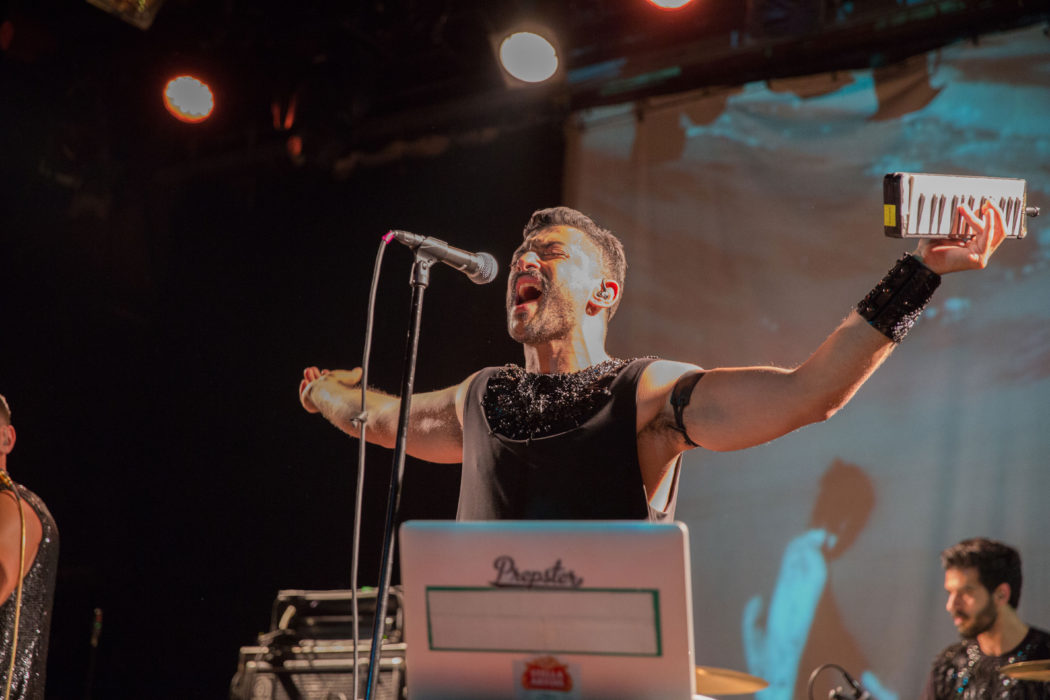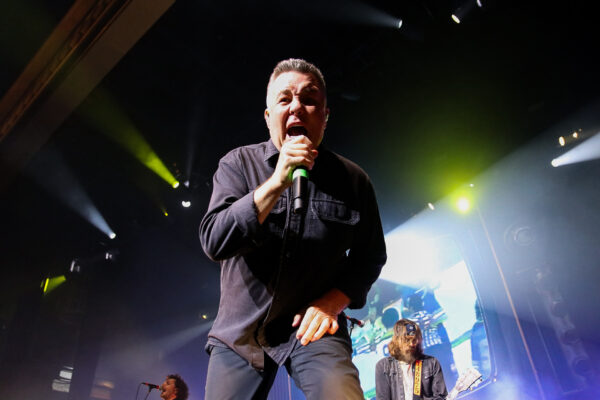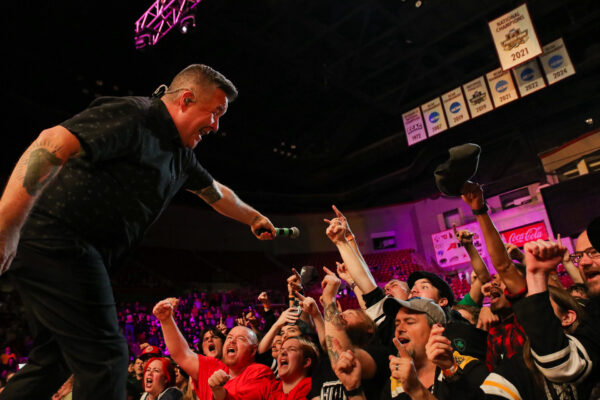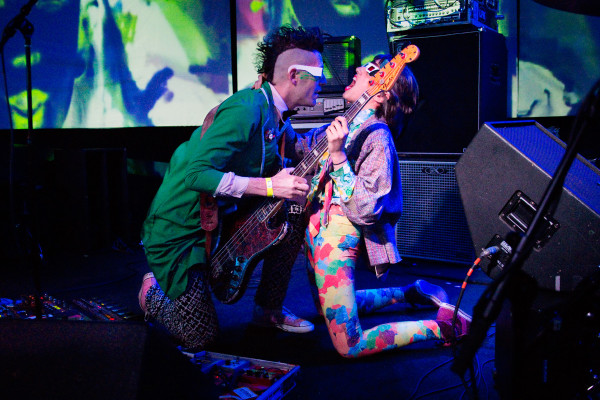I have a confession to make (one that might betray my Arab heritage), but I never really paid much attention to the music of my culture growing up. I was raised on the punk rock of the Clash, the pop sensibilities that grew out of Motown, the folksy Americana of the Sixties, the new wave pulse of the Eighties, the grunge of the west coast, and so on. My mom and dad tried to indoctrinate me into Arabic music, but to me, growing up in America, Europe and East Asia, it never transcended background music. I grew to appreciate it, but it never quite resonated with me. Yes I could bop my head to Amr Diab at weddings and could listen as my friends would dissect the poetry of Umm Kulthum for hours and hours, but it never grabbed me the way it did them.
But then came Mashrou’ Leila. Suddenly, I found myself hitting repeat on my media player. It took the sounds of this defiant Lebanese band to get me truly excited about the music coming out of my homeland. That’s why, when I heard they were coming to play the Music Hall of Williamsburg, I knew I had to be there.
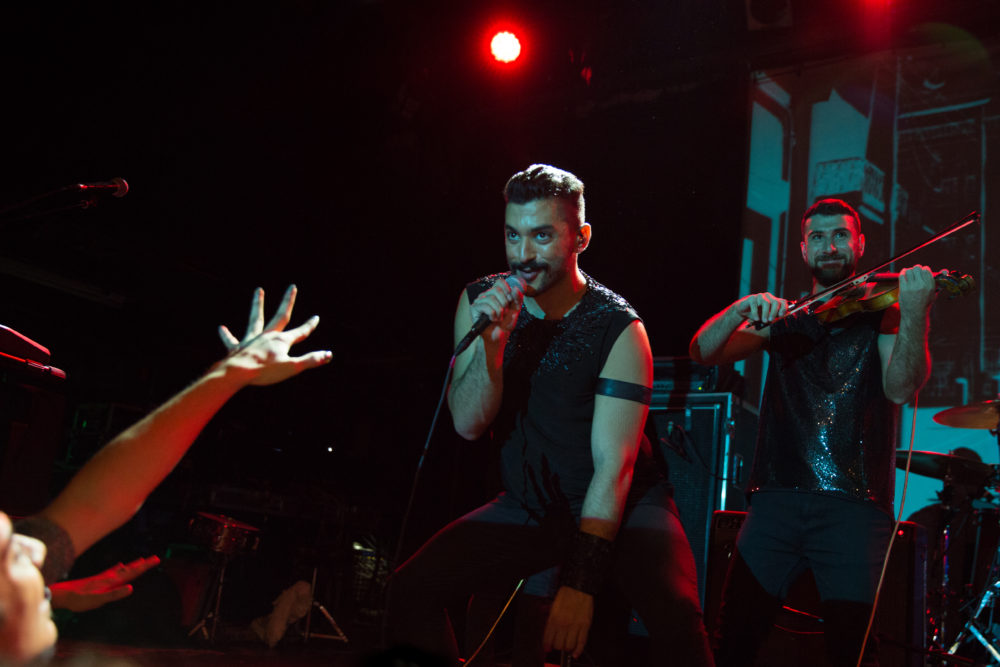
Mashrou’ Leila
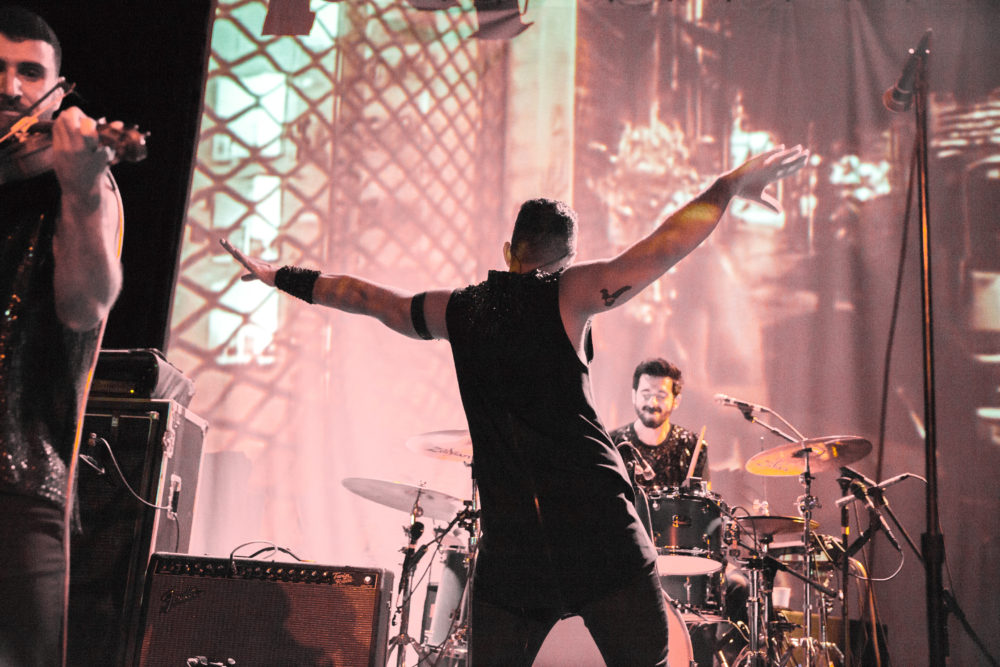
ML
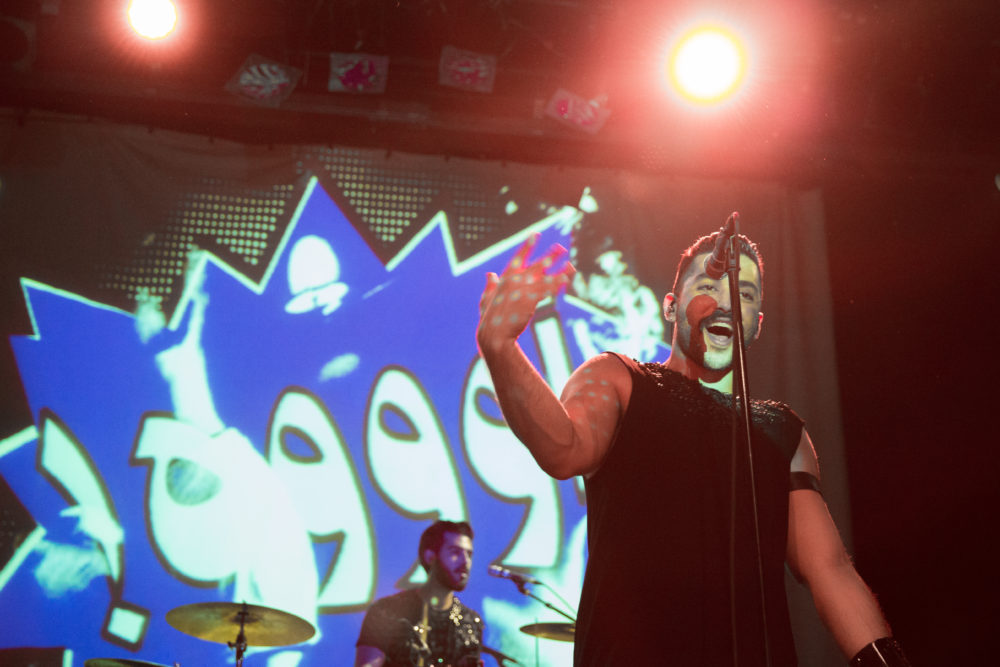
ML
These five young men from Beirut embrace a sound that is more in my wheelhouse, taking their cues from bands like the Arctic Monkeys and Roxy Music while never forgetting their roots. But perhaps more important than their sound is their message: resistance, fighting authority, and a quest for acceptance in an area of the world that is struggling to come to terms with individuality and equality. In fact, my hometown of Amman, Jordan recently banned their concert, citing the reason that their songs “contradicted” Islamic beliefs. The ban was eventually lifted by the Governor of Amman, but too late for the band to perform.
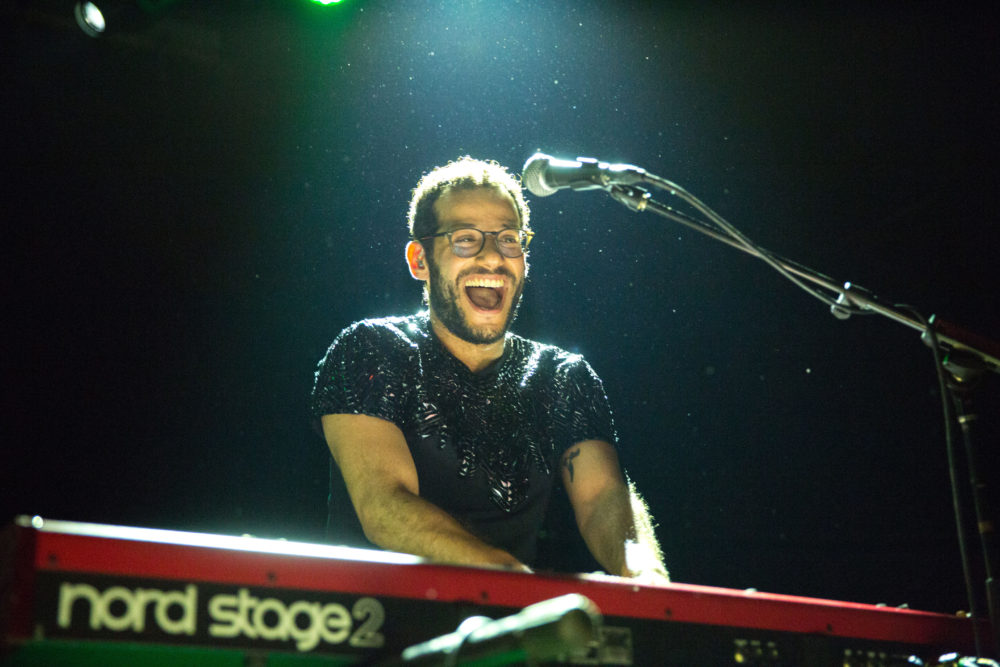
ML
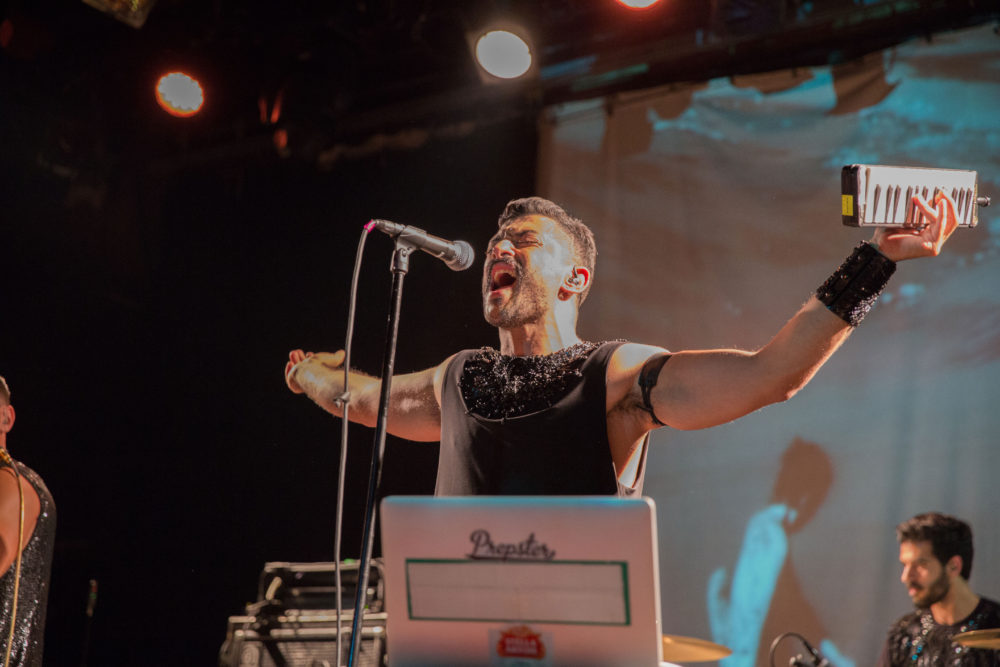
ML
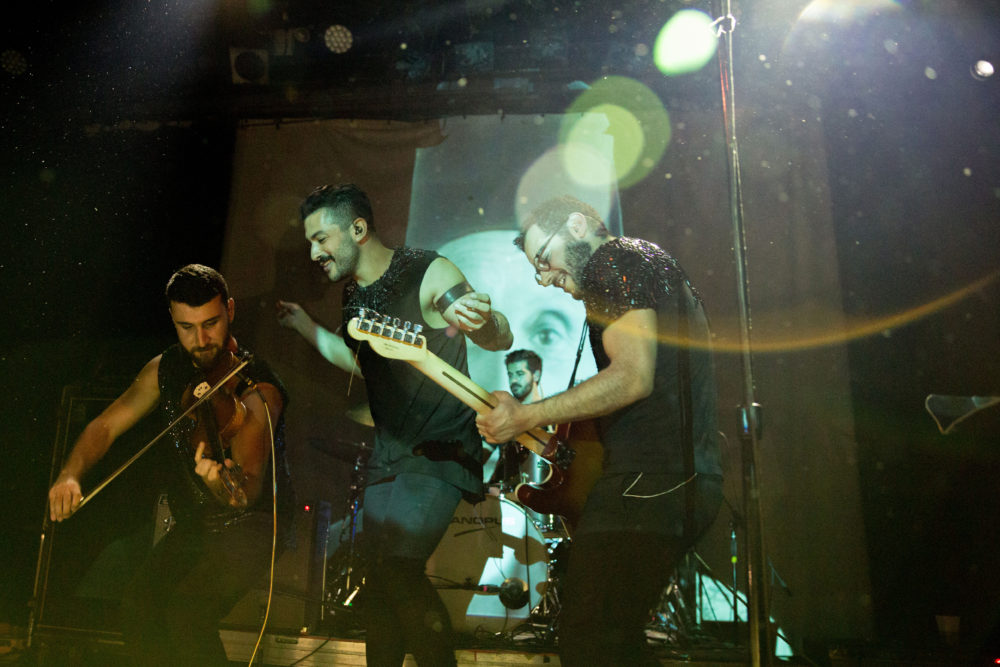
ML
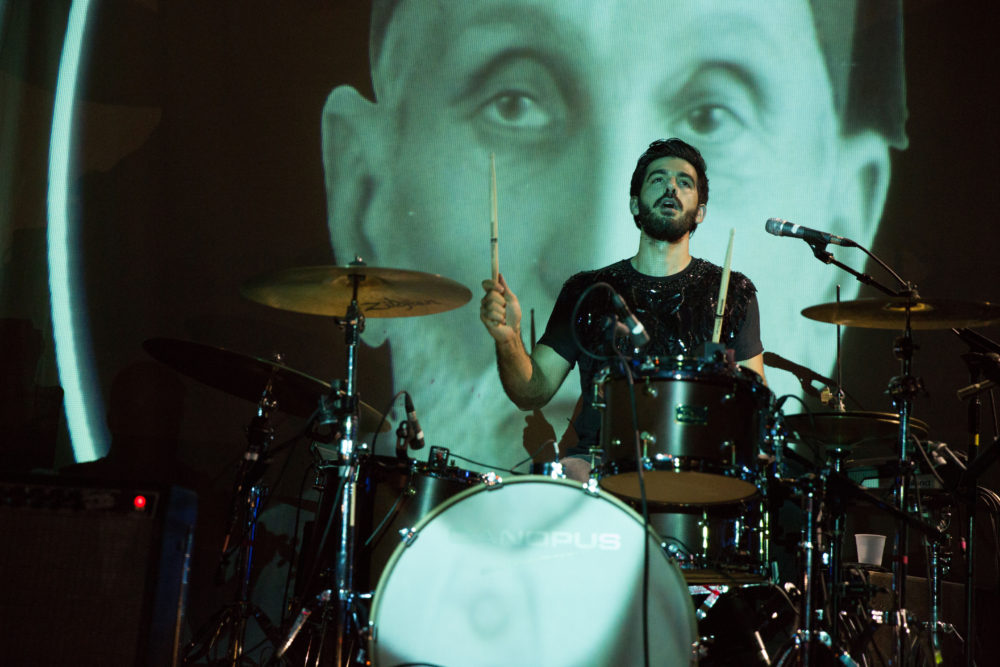
ML
Fronted by openly gay Hammed Sinno, Mashrou’ Leila’s songs focus on sex, drinking, and sticking a big old middle finger at the status quo – all long-time staples of rock and roll but topics that are taboo in much of the Middle East. (Of course, as I already admitted, my breadth of knowledge about Arab musicians is limited, and many friends have since told me Mashrou’ Leila is not alone in their message… so as a new convert to Arabic music, I assure you I am now seeking them out.)
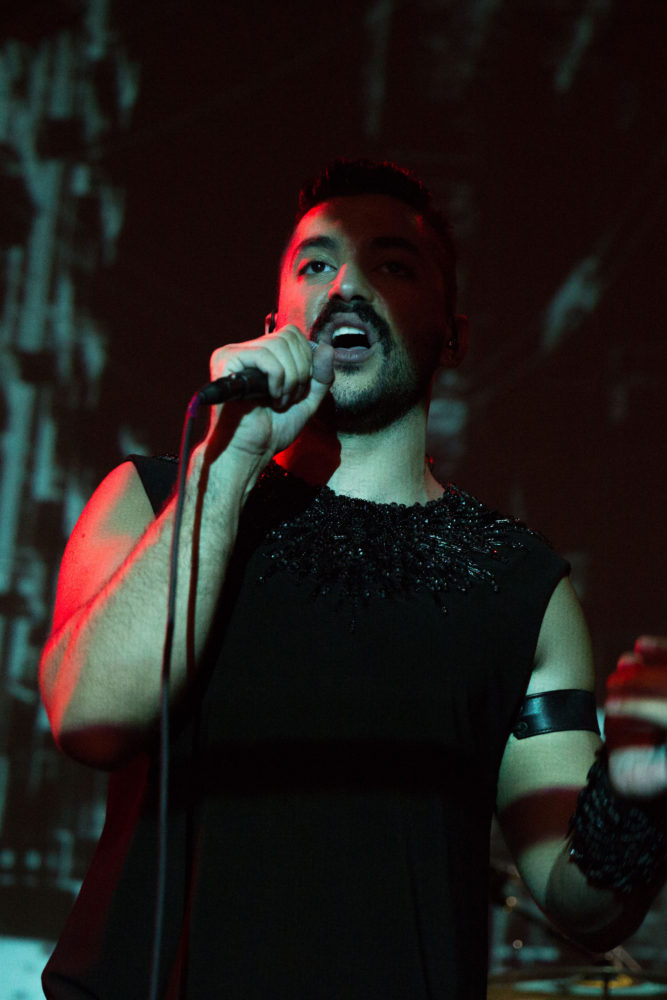
ML
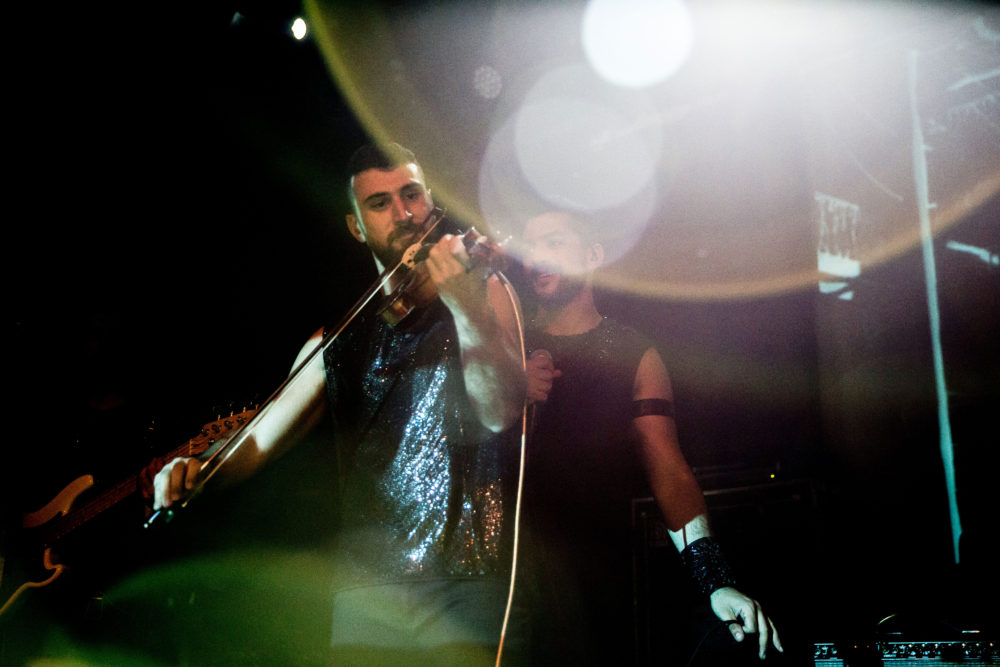
ML
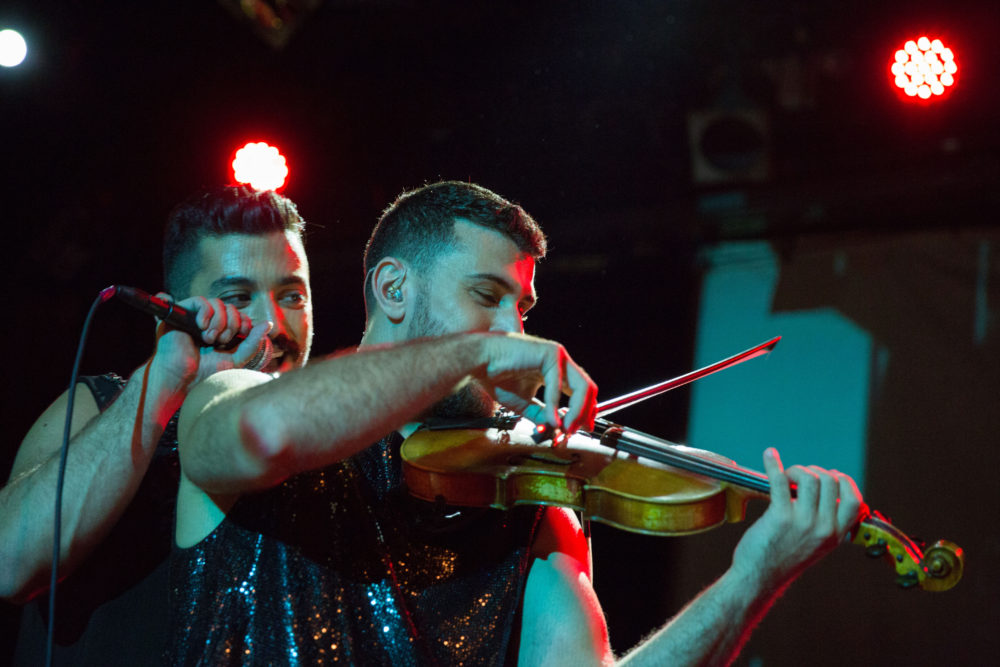
ML
In any case, it didn’t surprise me to see a long line of Middle Easterners waiting (ever-impatiently) for their show. What did surprise me was the number of non-Middle Easterners seemingly just as excited to see the band perform a sold out show at the Music Hall of Williamsburg. As they waited, the crowd packed in tighter and tighter, chanting at the empty stage. And finally when the first members of the band marched on stage, fashionably late, the crowd went wild. But it wasn’t until Sinno sauntered out a few minutes later that the electricity in the air was truly palpable.
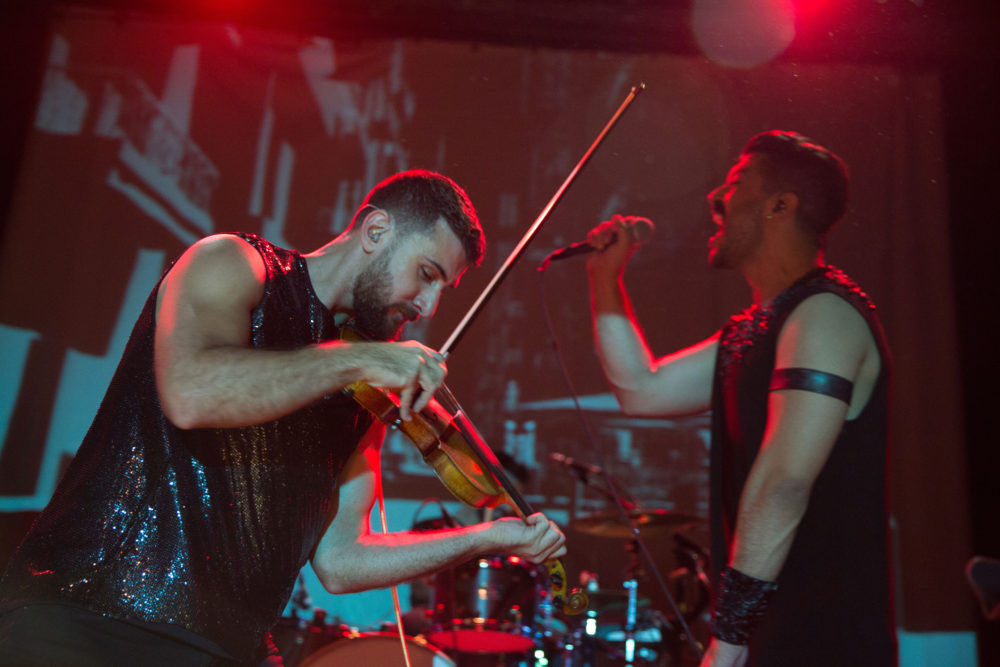
ML
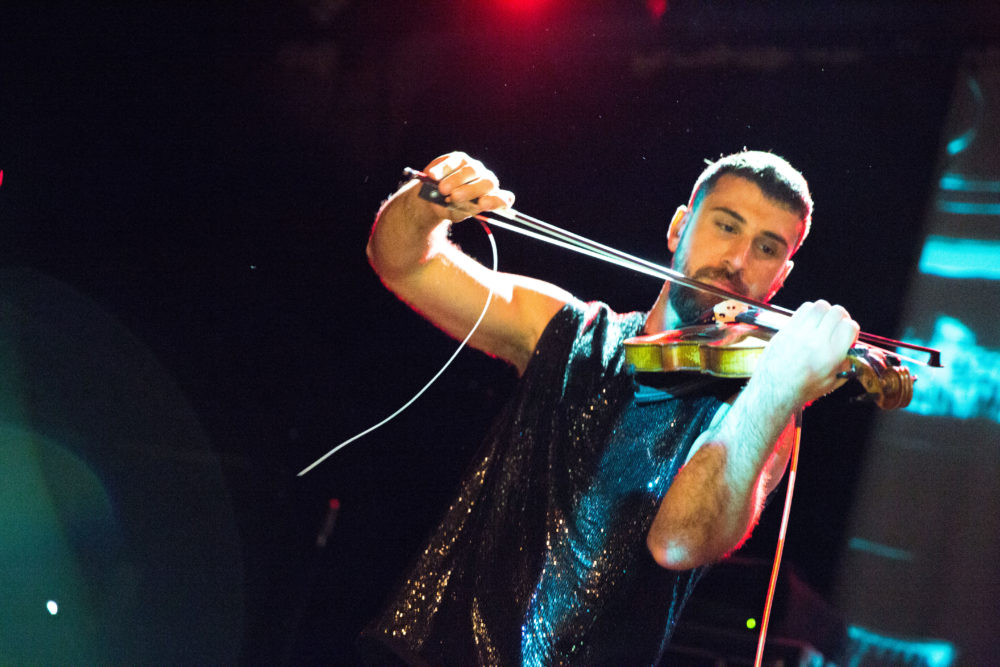
ML
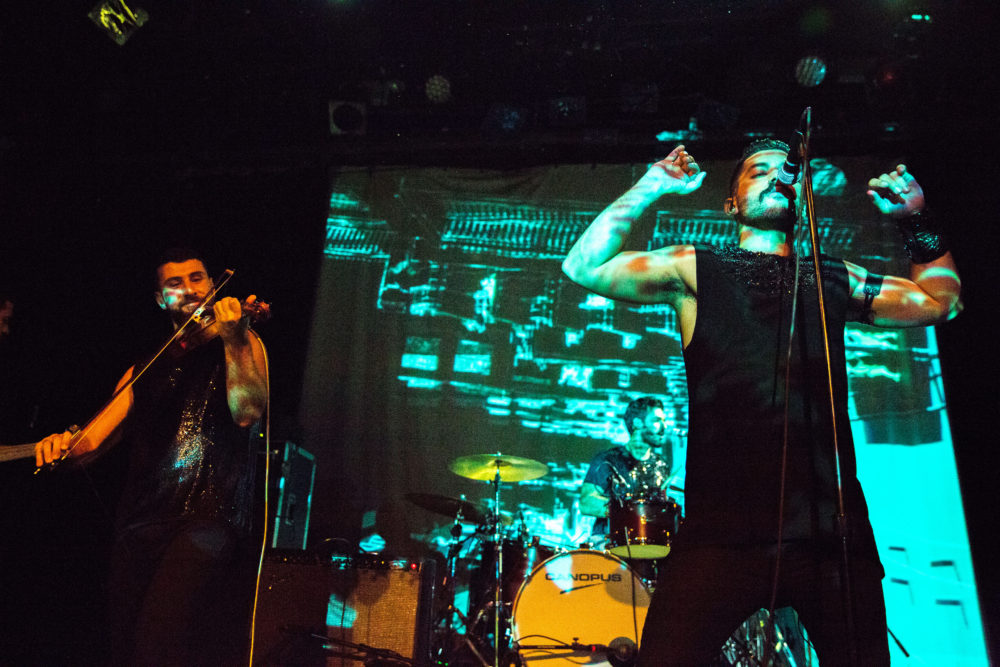
Mashrou’ Leila
There is no choice but to immediately be drawn to Sinno. The comparison I heard repeated through the night was “Freddie Mercury,” with his handlebar mustache, sleeveless top, and serpentine thrusts as he strutted across the stage… of course with a little bit of ‘vogue-ing’ thrown in for good measure. Right next to him stood Haig Papazian, wielding his violin like a scimitar slicing through the synth and pounding drumbeats of their sound. There is an eerie crawl that goes through many of the songs they played off their latest album ‘Ibn el Leil’ (Son of the Night).
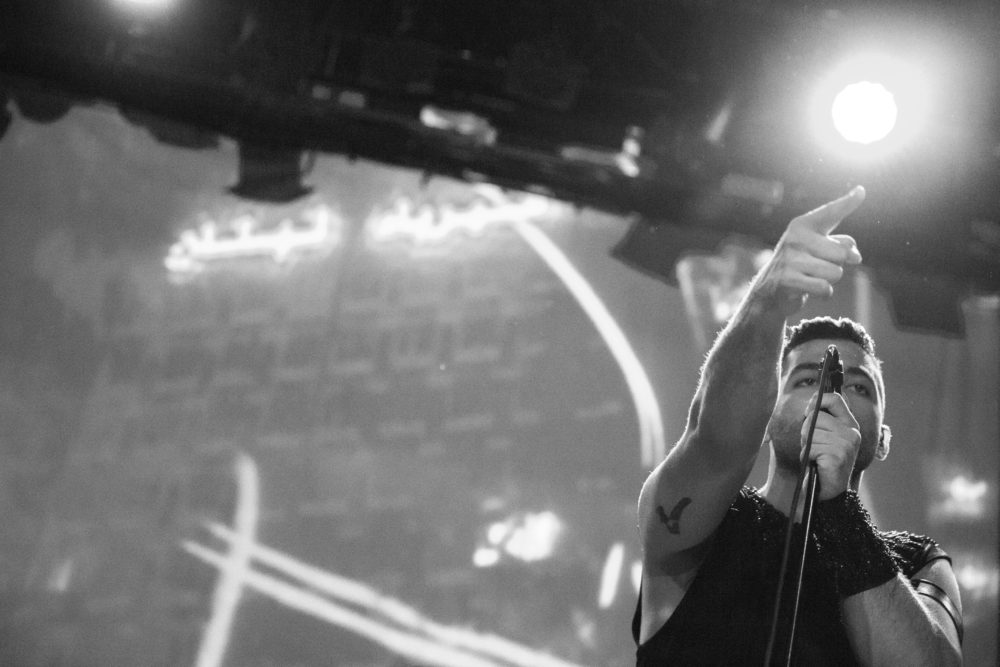
ML
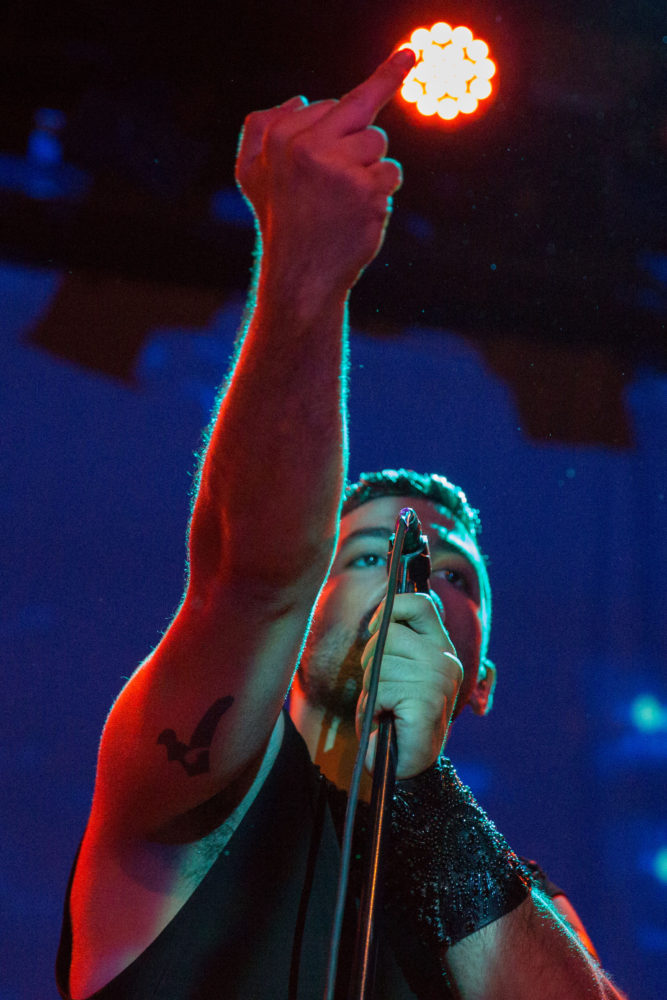
ML
Despite the heavier implications of their songs, the five of them have a jovial presence and a desire to connect with the crowd. Papazian regularly reached off the stage to high five audience members, while Sinno continually reminded the crowd how much this first show of their U.S. tour meant to them. But in keeping with their rock and roll persona, the theme of drinking and drug binges repeated itself through the night. Sinno even apologized to the crowd for how jet-lagged and drunk he was, (so much so, it eventually felt like he did so between each tune.) Though if he hadn’t mentioned it, there’s no way you would have ever known. Their energy was at high impact, as they incited a dance party throughout the crowd… even if it was one that belied their deeper message.
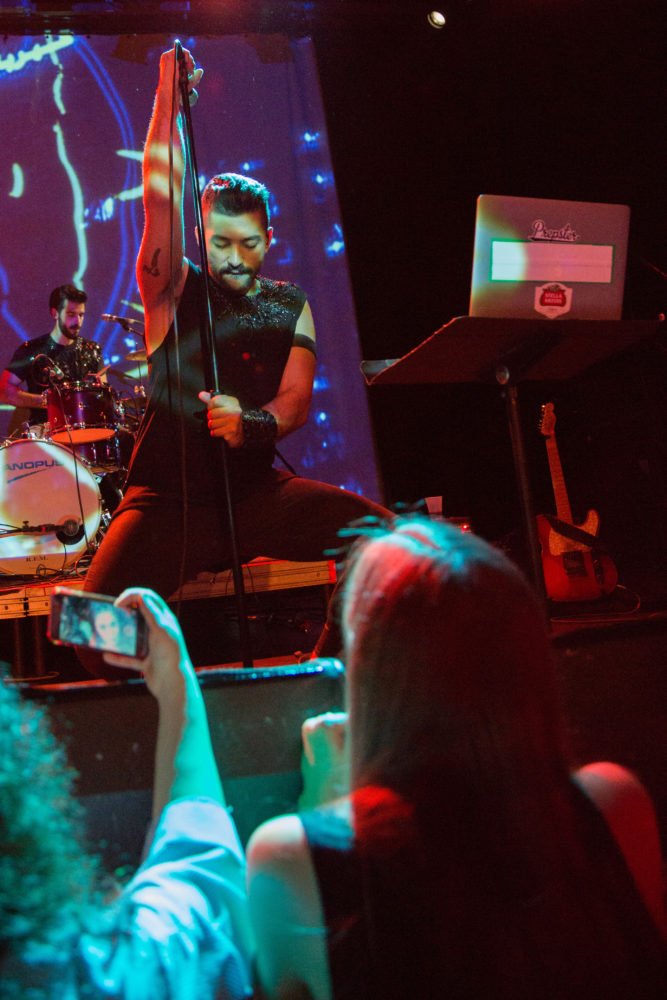
ML
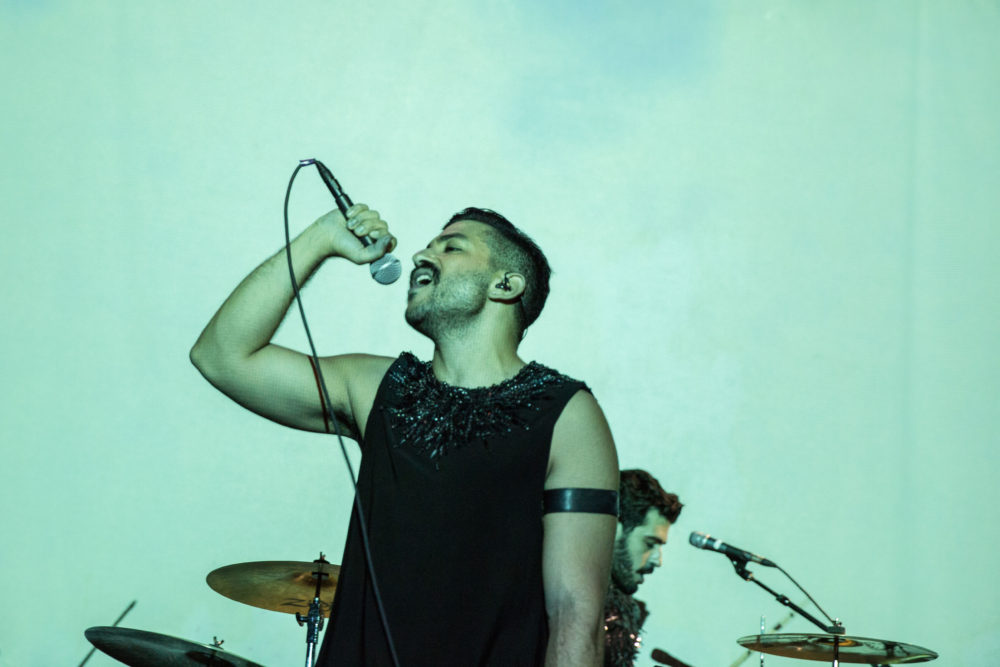
ML
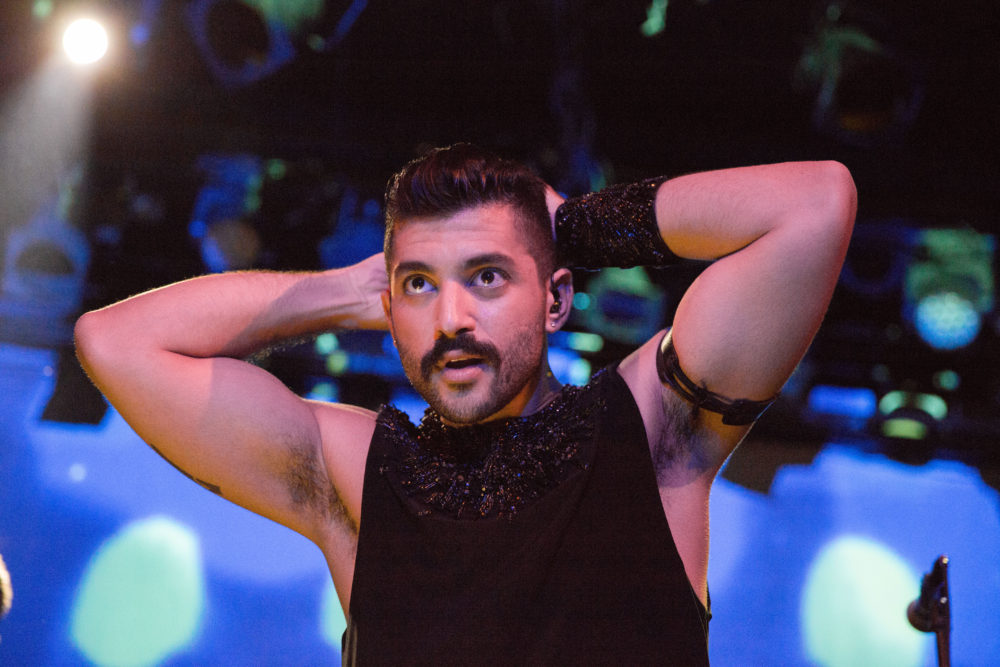
ML
This is a band that channels grief and frustration, albeit while making the audience dance and sing. And they kept the crowd informed of the meanings and origins of the songs most special to them, whether about LGBT friendly clubs in Beirut or crying out against gun violence that recently hit Lebanese nightlife.
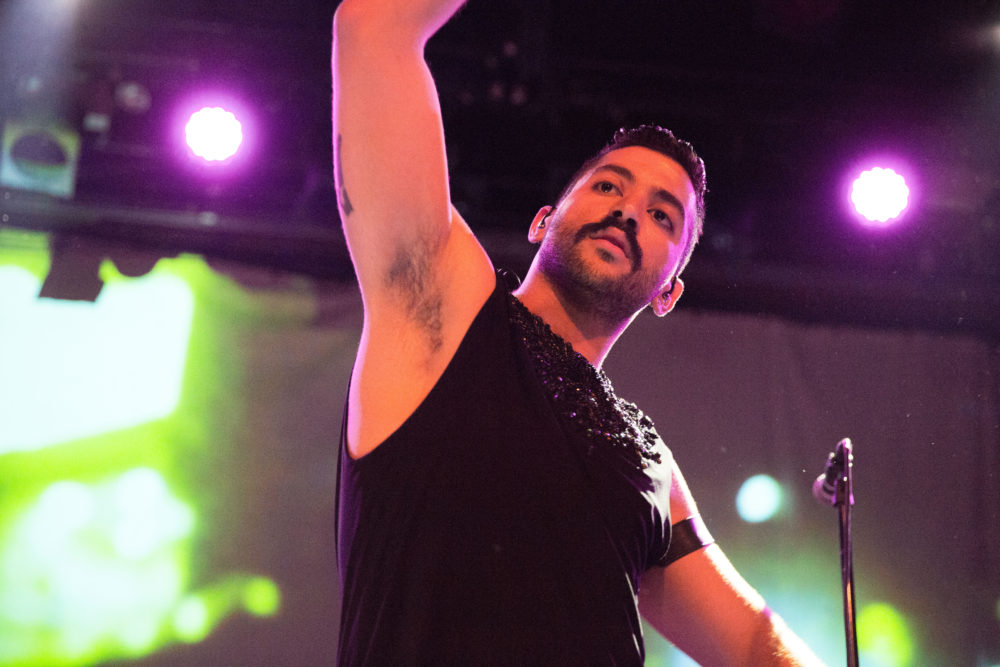
ML
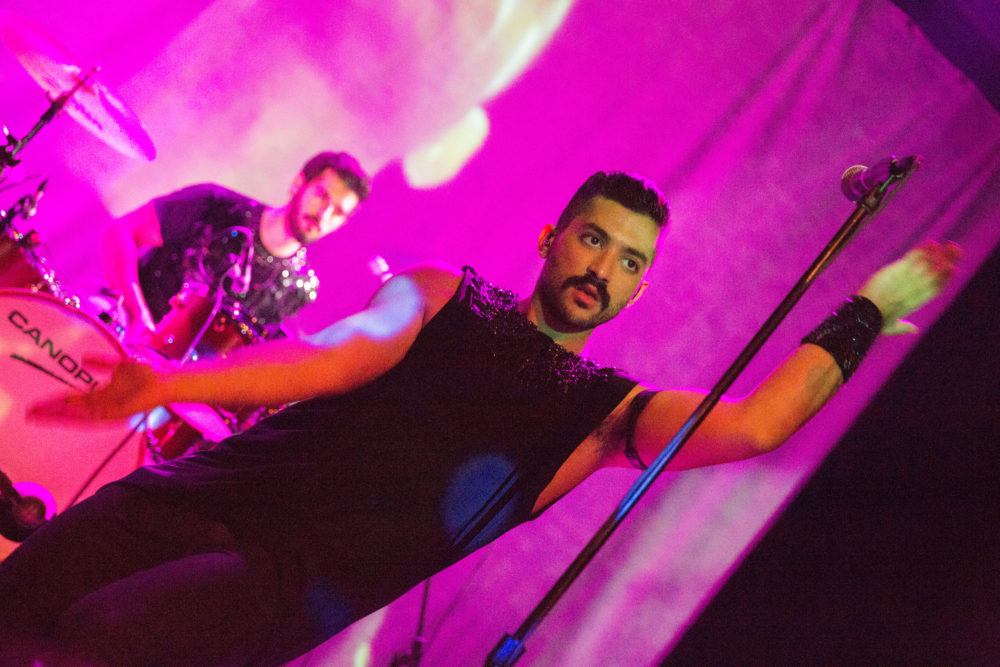
ML
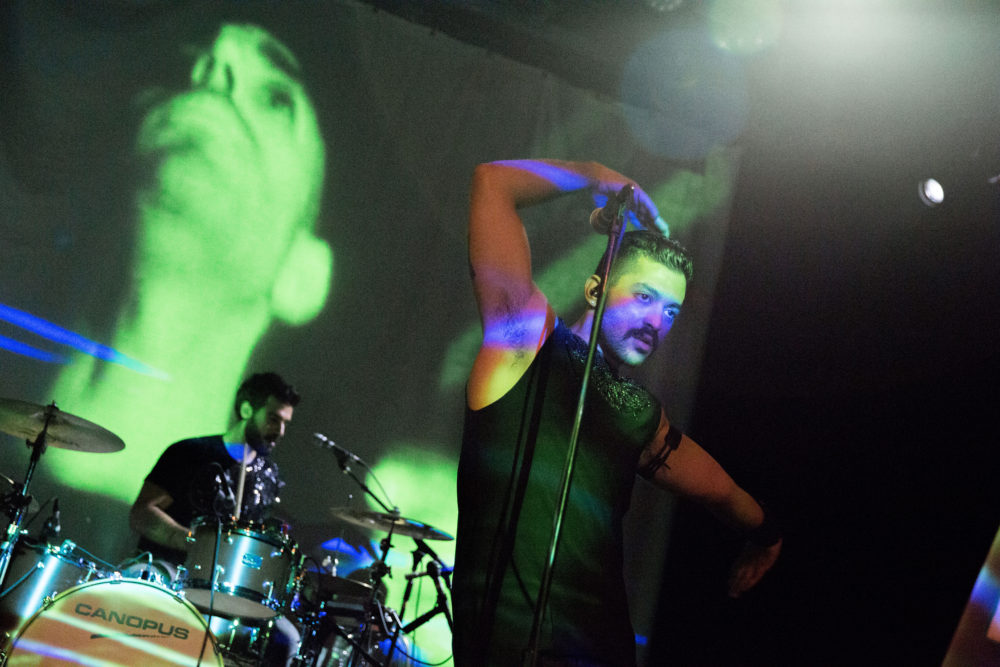
ML
Moreover, their lyrics evoke the poetry of the Arabic music that came before them. For instance, in their single ‘Djin’ they make no bones that while they may struggle, they’re going to enjoy their life on their own terms, with lyrics like:
Liver baptized in gin
I dance to ward off the djin
Down my liver in gin
In the name of the father and the son
Tomorrow I rise with the night
And the reckoning bell tolls
But hangovers far less that these woes
Between myself and my joy
(Translations via http://lyricstranslate.com/en/mashrou-leila-lyrics.html)
Whether it’s the Moroder-esque beats on the anti-gun anthem ‘Maghawir’ (Commandos), the misery-made-lyrical ode of ‘Tayf’ (Ghost) or the new album’s standout single ‘Djin’, Sinno made sure the Music Hall of Williamsburg knew where it all came from. And all night long, the audience was entranced, joining along in call and repeats and Arabic sing-alongs. But it was the band that seemed truly moved. The joy on their faces radiated as they received their sought after acceptance and love, and, in turn were able to reciprocate it.
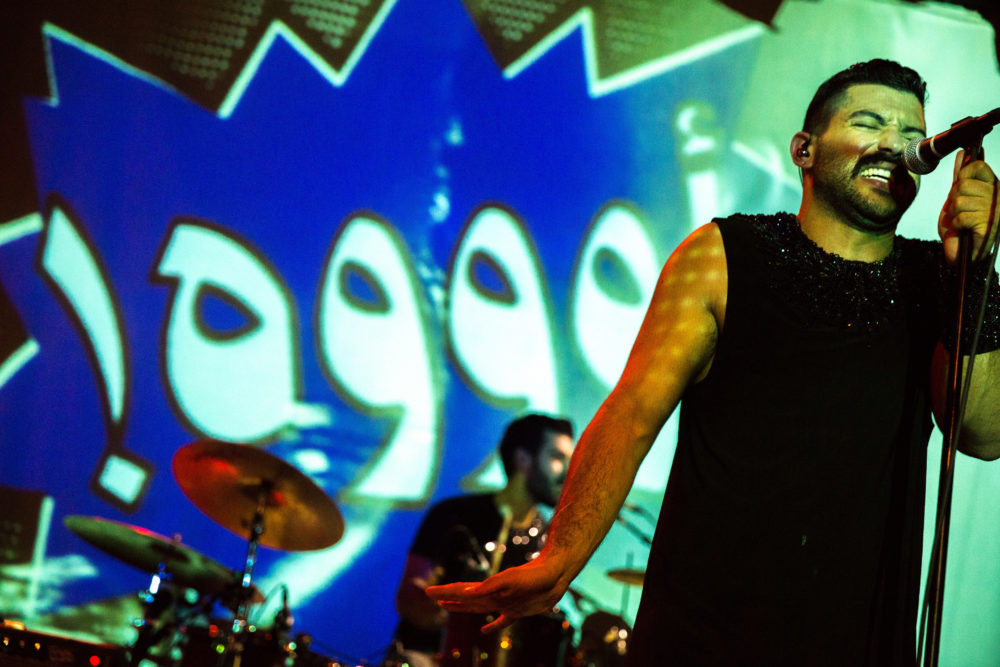
ML
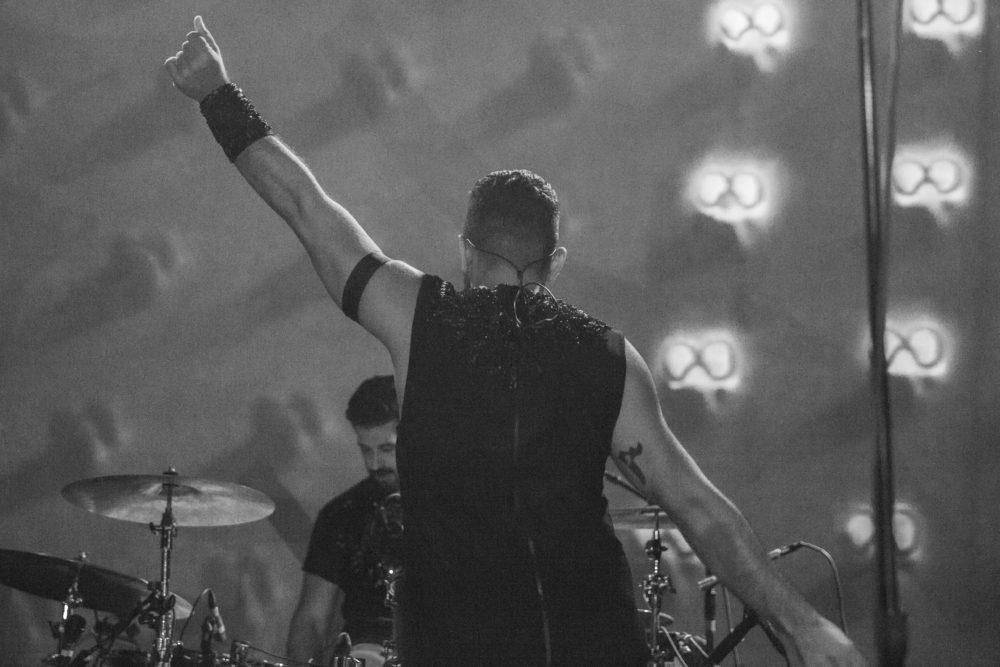
ML
I don’t know the answers to the problems in the Middle East or for that matter the West’s relationship with it, but as long as the positivity that radiated through the Music Hall of Williamsburg that night from the Arab voices of the underrepresented and pierced the Brooklyn air continues, it feels like a step in the right direction.
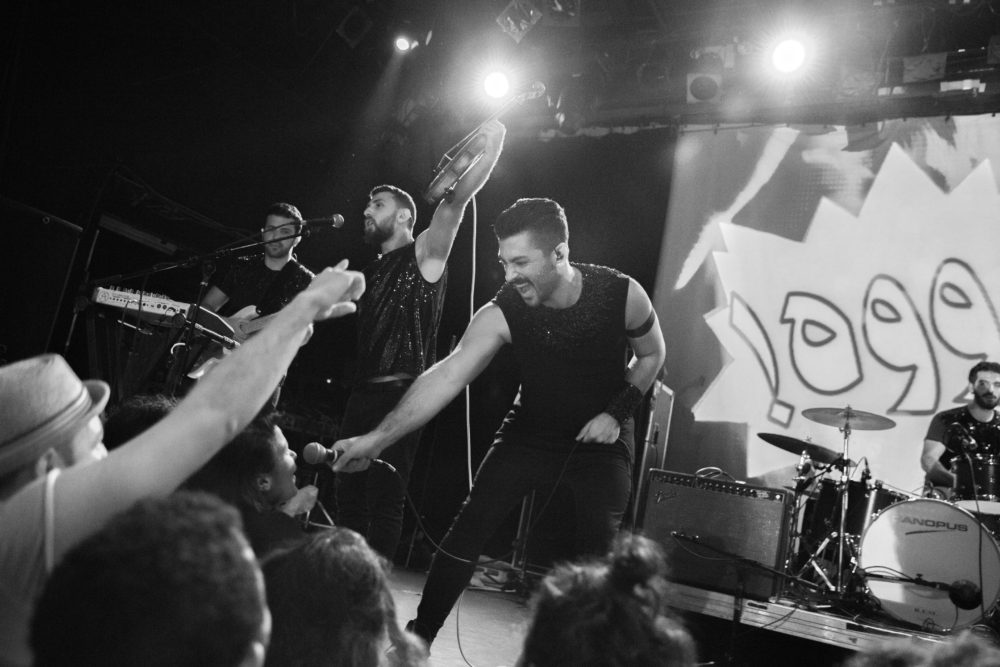
ML
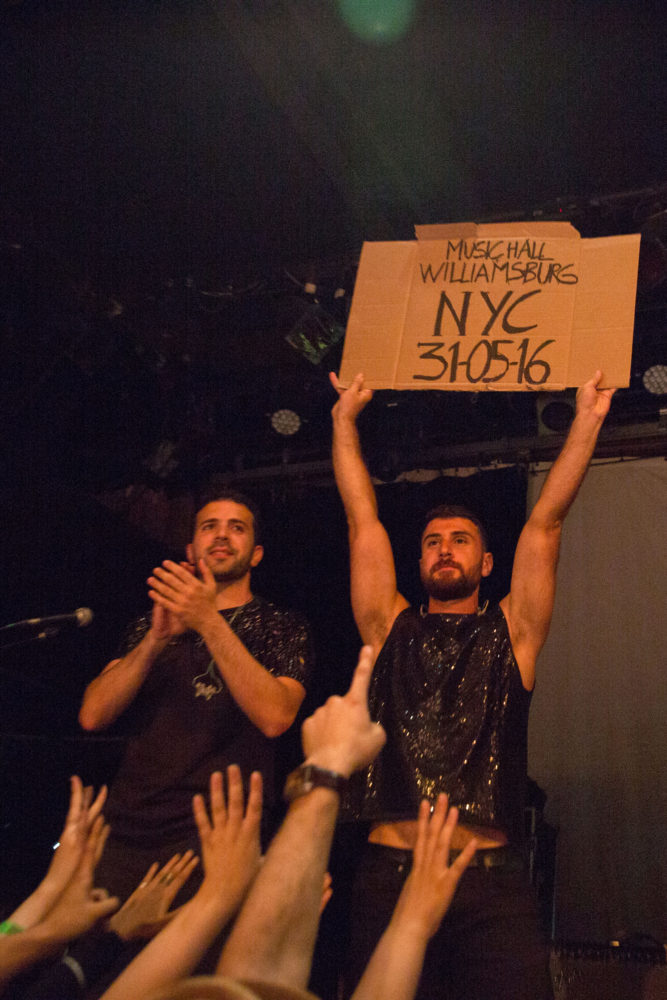
ML
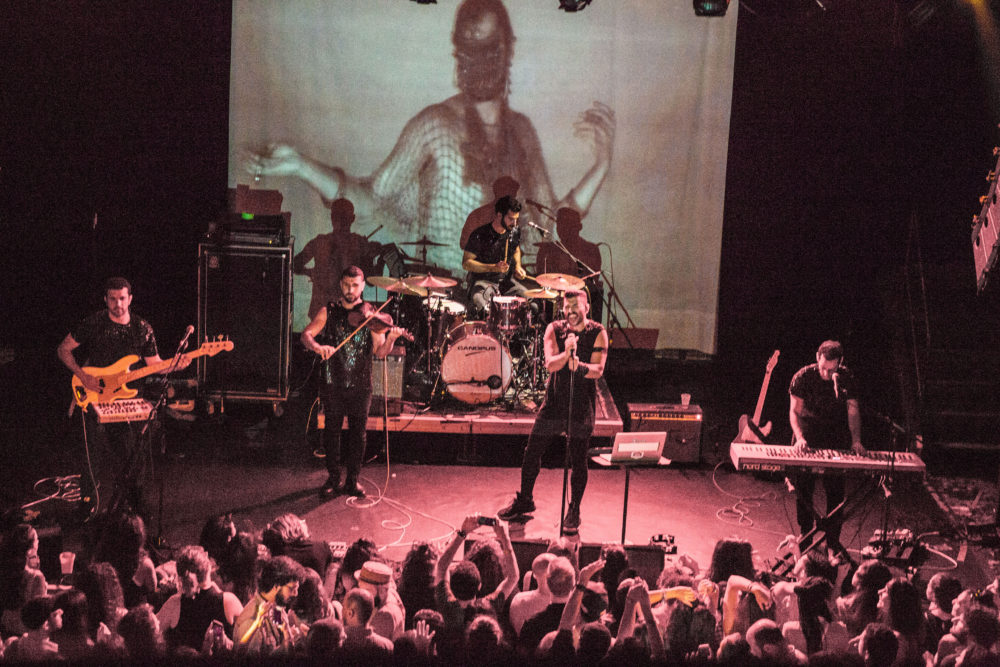
Mashrou’ Leila
Article: Omar Kasrawi

